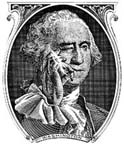The Fate of Medical Pot
By Raymond Cushing, AlterNet.com/
November 22, 2004
The Supreme Court is set to rule on whether the feds have the right to arrest medical marijuana patients. But will the justices have all the facts?
The end of November marks the beginning of what could be the final act for the medical marijuana movement. The U.S. Supreme Court is expected to take from Nov. 29 until late spring to decide, in the case of Ashcroft vs. Raich, whether federal agents can arrest medical cannabis patients, even in states that authorize medical cannabis use.
It is an epic states' rights battle, although few in the national media portray it that way. Major media outlets also continue to ignore a growing body of evidence that suggests that cannabinoids, the active ingredients in cannabis, show more healing potential for a variety of illnesses than practically any natural substance known to medical science.
Why is the federal government bent on suppressing cannabis when solid research suggests it can be so beneficial? Ask the members of the U.S. House and Senate, who blindly demonize marijuana while accepting millions of dollars in donations from the same pharmaceutical giants who back cannabis prohibition.
If the Supreme Court also turns a blind eye to the research and rules, as it did in 2001, that cannabis has no medical use unless Congress says it has a medical use, then it hardly matters if cannabinoids turn out to be the cure for cancer, as some European cannabis researchers are suggesting.
In May 2000 I reported that Spanish researchers had shrunk or destroyed deadly brain tumors in rats using THC, a cannabinoid. The Spaniards' study was reportedly the first time that cannabinoids had been administered to tumor-bearing animals. With information provided by Manuel Guzman, the lead researcher in the Madrid study, I uncovered a 1974 study done in the United States in which THC had shrunk breast and lung tumors in rats. The federal government had suppressed the study's results and subsequently shut down all cannabis research at public institutions.
One year later, the U.S. Supreme Court issued its first ruling on medical cannabis, a negative decision against the Oakland Cannabis Buyers Club.
The intervening years have seen substantial research on cannabinoids by Guzman and a handful of dedicated European scientists. In 2003 the First European Workshop on Cannabinoid Research produced more than 50 pages of investigative abstracts from the U.K., Italy, Spain, Germany and France that provide the scientific basis for researchers' claims that cannabinoids hold promise for Alzheimer's, cancer, Parkinson's, alcoholism, depression and other illnesses.
In October 2003 Guzman published a review of cannabis research in Nature Cancer that described in detail the anti-cancer properties of cannabinoids. Last August, Guzman reported in Cancer Research how cannabinoids deprive cancerous tumors of the blood they need to survive. The article mentioned the first known trials of cannabis tincture on humans with brain cancer, which reportedly showed positive results.
The research findings of European cannabis researchers receive substantial coverage in Spain, Latin America, the U.K., France and Germany. The U.S. media have been largely silent, until recently. The American Association for Cannabis Research, a 15,000-member group of U.S. cancer researchers, issued a press release in August about Guzman's latest findings, prompting coverage in Scientific American and a smattering of other mainstream outlets.
It is impossible to know whether Justice Clarence Thomas, who wrote the negative decision in the 2001 Oakland Cannabis Buyers Club case, will be aware that cannabinoids shrink tumors when he makes his decision in Ashcroft vs. Raich. The Supreme Court justices and their legal staff would appear to have a moral, if not a legal responsibility to acquire at least a rudimentary knowledge of the circumstances surrounding the great national issues they decide. In the case of medical marijuana, there is so much evidence about the healing potential of cannabinoids, even on the government's own web sites, that it suggests negligence to ignore it.
If the Supreme Court rules against patients in Ashcroft vs. Raich, it will give the U.S. Justice Department all the justification it needs to resume its persecution of medical pot users and effectively destroy the medical marijuana movement in California and nine other states. Then cannabis clubs will become part of our collective memory, and valuable research on cannabinoids will continue to be ignored.
Raymond Cushing is a writer based in Sacramento, Calif. His article on cannabis research was included in the 2000 Project Censored collection.
Web Sites:
URL: http://alternet.org/drugreporter/20577/
Angel Raich v. Ashcroft News
http://freedomtoexhale.com/raich.htm
# posted by amestizo @ 11/23/2004 11:49:00 AM
